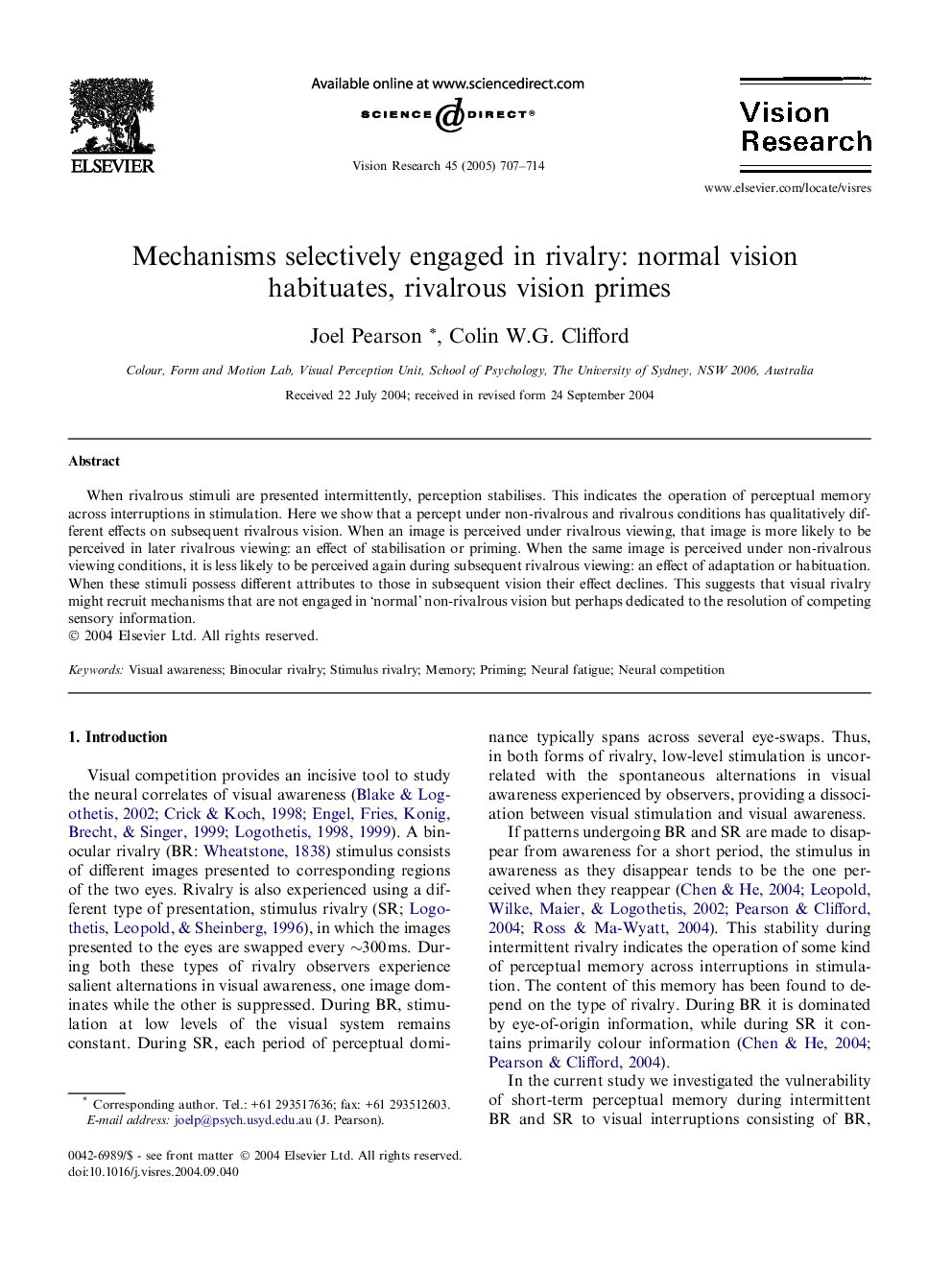| Article ID | Journal | Published Year | Pages | File Type |
|---|---|---|---|---|
| 9348573 | Vision Research | 2005 | 8 Pages |
Abstract
When rivalrous stimuli are presented intermittently, perception stabilises. This indicates the operation of perceptual memory across interruptions in stimulation. Here we show that a percept under non-rivalrous and rivalrous conditions has qualitatively different effects on subsequent rivalrous vision. When an image is perceived under rivalrous viewing, that image is more likely to be perceived in later rivalrous viewing: an effect of stabilisation or priming. When the same image is perceived under non-rivalrous viewing conditions, it is less likely to be perceived again during subsequent rivalrous viewing: an effect of adaptation or habituation. When these stimuli possess different attributes to those in subsequent vision their effect declines. This suggests that visual rivalry might recruit mechanisms that are not engaged in 'normal' non-rivalrous vision but perhaps dedicated to the resolution of competing sensory information.
Related Topics
Life Sciences
Neuroscience
Sensory Systems
Authors
Joel Pearson, Colin W.G. Clifford,
